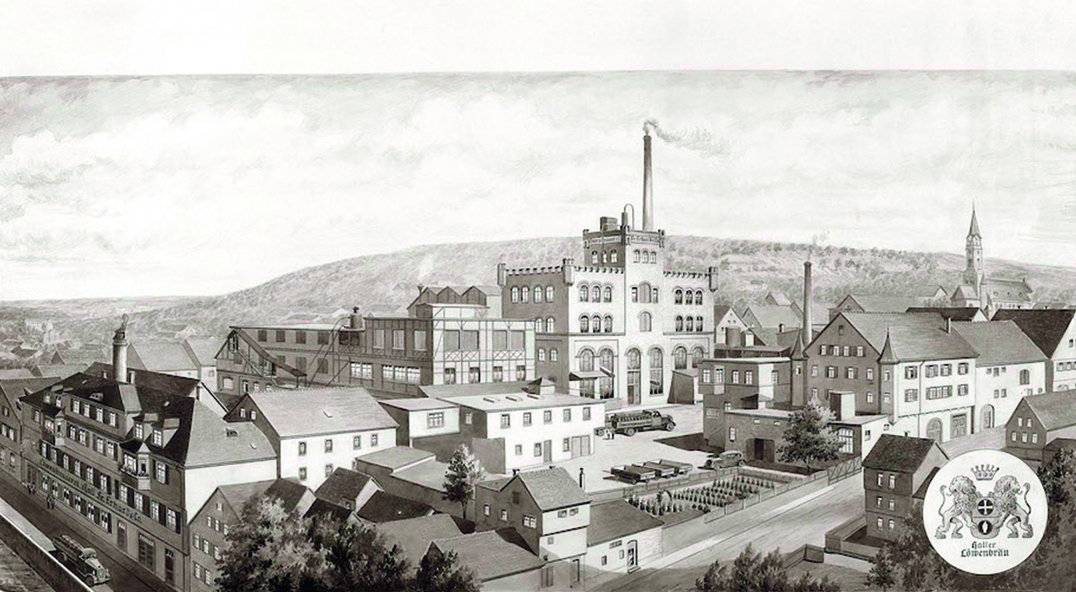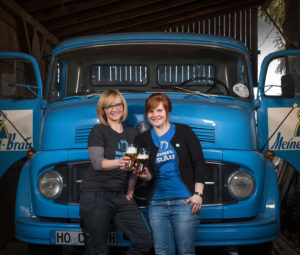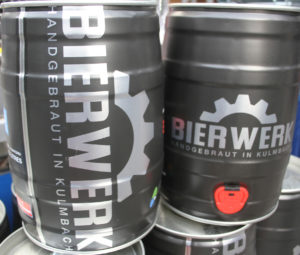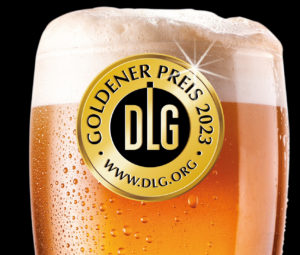For nine generations, the Haller Löwenbräu brewery from Schwäbisch Hall has been in family hands, with a brewing tradition dating back to 1724. Brewed with genuine spring water from its own wells and the finest ingredients in accordance with the German Beer Purity Law, the brewery has stood the test of time. However, faced with rising energy and raw material costs and a steadily declining beer consumption trend, even this traditional brewery has had to adapt.
In times of change, we spoke to Peter Theilacker about how you can still survive and remain true to your own philosophy of values. Together with Hans Firnkorn, he is the managing partner of the brewery, and a direct descendant of the founder, who knows one thing for sure: good beer takes time!
Good beer needs time: Brewing slowly for more enjoyment!
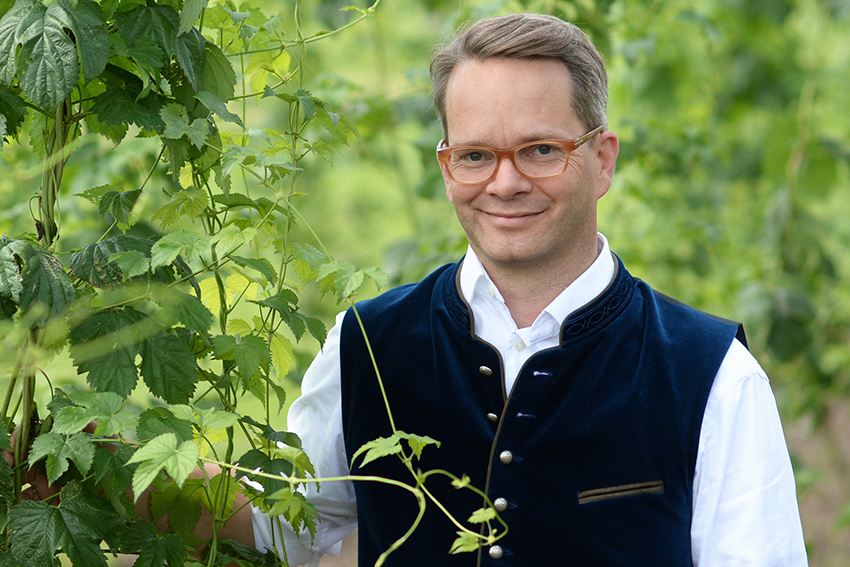
Peter Theilacker, Managing Director of Löwen brewery Hall
“For 30 years, the beer market has been steadily declining,” says Theilacker. “We won’t be able to reverse this trend. Consumers have become more sensitive in their alcohol consumption, and that’s certainly correct. Instead of unrealistic growth fantasies, Haller Löwenbräu relies on our regional roots, loyal customer base, and uncompromising quality. That’s why we have been a certified member of the SlowBrewing – Brewing with Time for Taste association since 2013. We give our beers significantly more time to mature. This results in a smoother carbonation, more flavor, and better digestibility,” explains Theilacker, emphasizing the brewery’s commitment to the slow brewing process. The brew stays in the fermentation and maturation tanks for six to eight weeks. This is also called ‘cold maturation’ because it maintains a temperature of up to approximately 1 degree Celsius. This process breaks down so-called fusel alcohols, resulting in a more digestible, high-quality natural product.
SlowBrewing – a certificate that makes us proud!
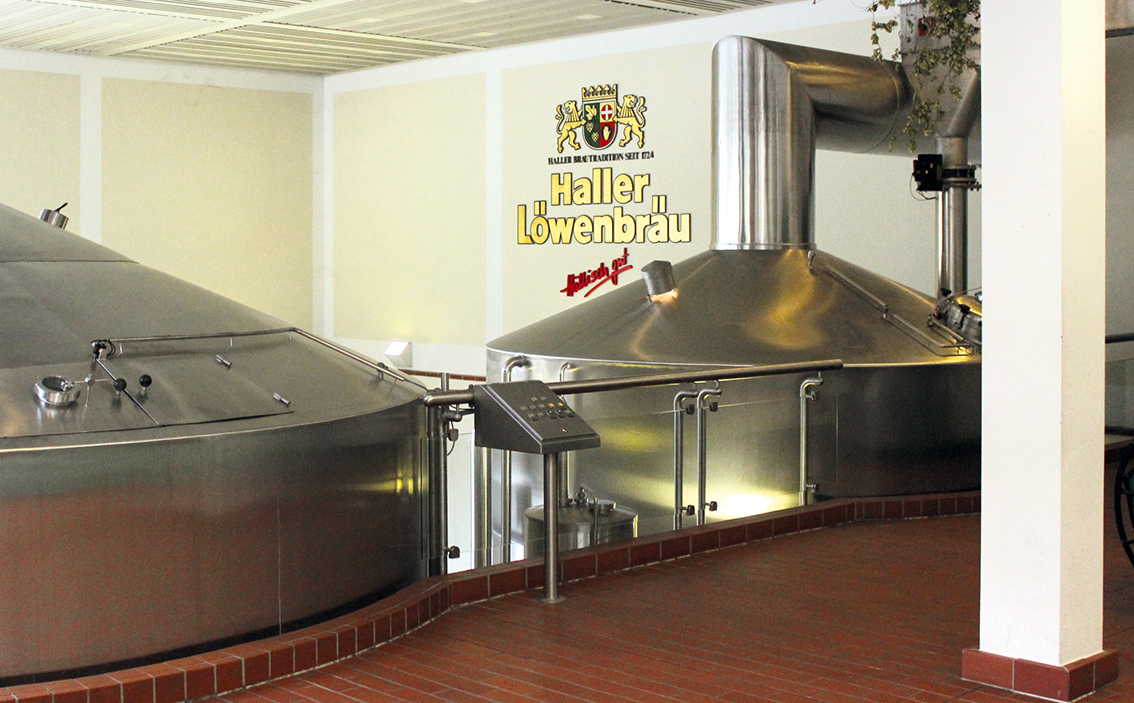
The brewhouse of Haller Löwenbrewery
The SlowBrewing Institute awards the quality seal after rigorous and extensive examination. This independent and scientifically based control body consists of ten brewing experts from academia and research, led by Dr. August Gresser, an honorary member of the “Accademia della Birra” and the Association of Former Weihenstephaners in the Brewer’s Department. The institute collaborates with a scientific advisory board and independent experts from TU Munich and CERB for the examinations. The certification includes, among other things, raw material quality, the nature and quality of the brewing process, and the quality of sustainable corporate management and culture. The strict, scientifically based audit comprises more than 1000 questions defined by the independent experts of the Slow Brewing Institute.
“The Slow Brewing seal makes us proud,” comments Theilacker. “We know that it not only recognizes our beer but also our entrepreneurship. Especially in our fast-paced hectic time, where profit maximization usually takes precedence, a company that prioritizes slowness and the best raw materials is convincing. We all need to think more about our values. Only then can we work towards making our world a better place.”
About the best beers, pigs and the party keg!
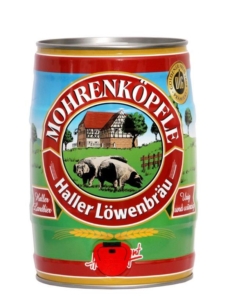 At Haller Löwenbräu, Helles is gaining popularity as a beer style. However, the Meistergold variety is particularly popular. It’s a pale lager that falls between an export and a classic Helles. It’s spicy, quaffable, brewed with a robust body and a slightly sweet malt note. Haller Löwenbräu doesn’t use hop extract but employs real hop pellets, making the beer more aromatic and durable. For Meistergold, Hallertauer Perle and Taurus hop varieties are used. Meistergold is also available as an alcohol-free version and as a Naturradler (shandy), a naturally cloudy and flavorful light refreshment.
At Haller Löwenbräu, Helles is gaining popularity as a beer style. However, the Meistergold variety is particularly popular. It’s a pale lager that falls between an export and a classic Helles. It’s spicy, quaffable, brewed with a robust body and a slightly sweet malt note. Haller Löwenbräu doesn’t use hop extract but employs real hop pellets, making the beer more aromatic and durable. For Meistergold, Hallertauer Perle and Taurus hop varieties are used. Meistergold is also available as an alcohol-free version and as a Naturradler (shandy), a naturally cloudy and flavorful light refreshment.
One of the brewery’s specialty beers is Mohrenköpfle, named after the nickname of the local Swabian-Hallian pig, a source of particular pride in the region. It’s a malty yet mildly hopped beer with a subtle caramel note. Not only has it received several awards, but it’s also a particularly popular variety among the loyal customers of the region – and what other beer has a genuine pig on the label?
Good beer takes time – and a party keg from Envases!
“Of course, the bottle is still our most common packaging,” comments Theilacker. “But since we practically brew our beer in the direct vicinity of Envases, we share a long and intensive friendship. We not only test new developments around the 5-liter keg but also gladly use it, for example, for our Pils and Mohrenköpfle. We love the large advertising space on the Minikeg, which can be creatively designed, making each little keg an eye-catcher. We particularly enjoy using the party keg for large events and special campaigns. In 2024, there will be an extra Minikeg for the UEFA European Football Championship. Then, our customers can do exactly what we love: enjoy a freshly tapped beer in the convivial company of friends and family. What more could one ask for?”
